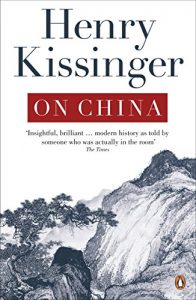For more than twenty years after the Communist Revolution in 1949, China and most of the western world had no diplomats in each others' capitals and no direct way to communicate. Then, in July 1971, Henry Kissinger arrived secretly in Beijing on a mission which quickly led to the reopening of relations between China and the West and changed the course of post-war history.
For the past forty years, Kissinger has maintained close relations with successive generations of Chinese leaders, and has probably been more intimately connected with China at the highest level than any other western figure. This book distils his unique experience and long study of the 'Middle Kingdom', examining China's history from the classical era to the present day, and explaining why it has taken the extraordinary course that it has.
The book concentrates on the decades since 1949, presenting brilliantly drawn portraits of Mao Zedong, Zhou Enlai, Deng Xiaoping and other Chinese leaders, and reproducing verbatim Kissinger's conversations with each of them. But Kissinger's eye rarely leaves the long continuum of Chinese history: he describes the essence of China's approach to diplomacy, strategy and negotiation, and the remarkable ways in which Communist-era statesmen have drawn on methods honed over millennia. At the end of the book, Kissinger reflects on these attitudes for our own era of economic interdependence and an uncertain future.
On China is written with great authority, complete accessibility and with many wider reflections on statecraft and diplomacy distilled from years of experience. At a moment when the rest of the world is thinking about China more than ever before, this timely book offers insights that no other can.






